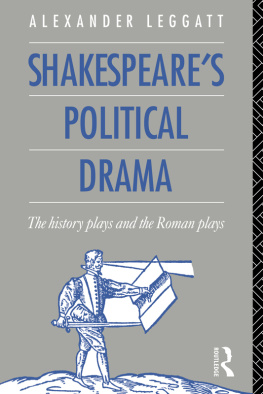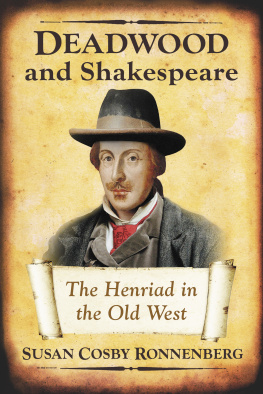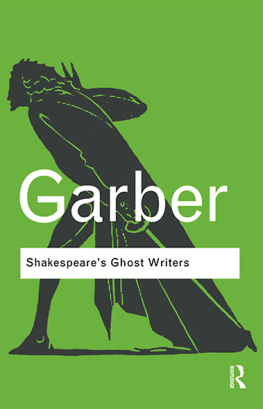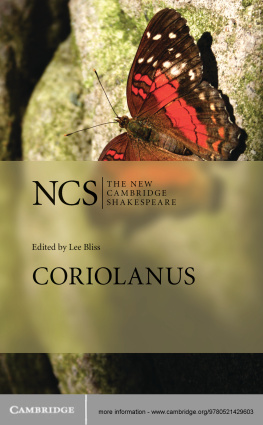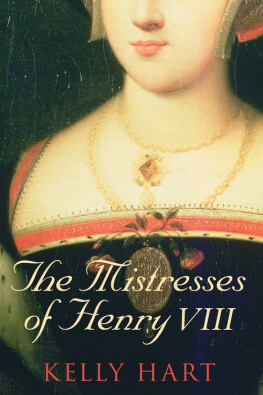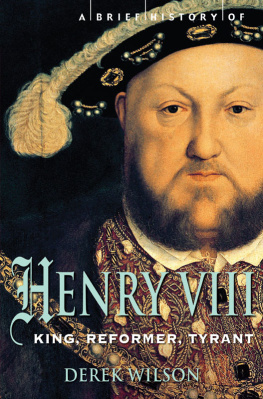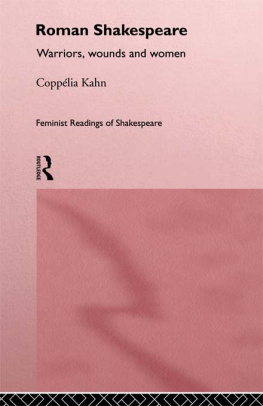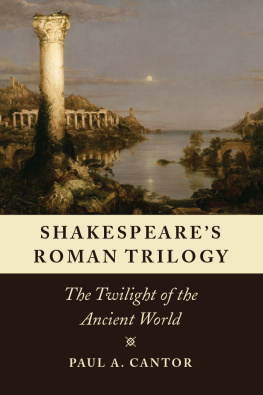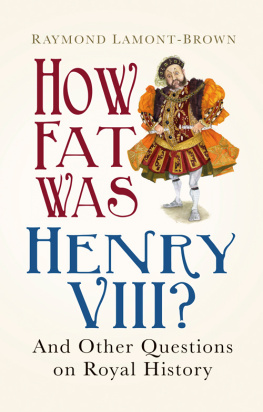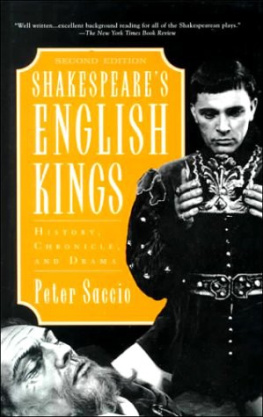for
The Shakespeare Institute
Shakespeares Political Drama
ShakespearesPolitical Drama
THE HISTORY PLAYS AND THE ROMAN PLAYS
Alexander Leggatt

First published 1988
by Routledge
11 New Fetter Lane, London EC4P 4EE
Simultaneously published in the USA and Canada
by Routledge
29 West 35th Street, New York, NY 10001
First published in paperback 1989
Routledge is an imprint of the Taylor & Francis Group
This edition published in the Taylor & Francis e-Library, 2005.
To purchase your own copy of this or any of Taylor & Francis or Routledges collection of thousands of eBooks please go to www.eBookstore.tandf.co.uk.
1988 Alexander Leggatt
All rights reserved. No part of this book may be reprinted or reproduced or utilized in any form or by any electronic, mechanical, or other means, now known or hereafter invented, including photocopying and recording, or in any information storage or retrieval system, without permission in writing from the publishers.
British Library Cataloguing in Publication Data
A catalogue record for this book is available from the British Library
Library of Congress Cataloging in Publication Data
A catalog record for this book is available from the Library of Congress
ISBN 0-203-35904-6 Master e-book ISBN
ISBN 0-203-37160-7 (Adobe eReader Format)
ISBN 0-415-00655-4 (hbk) ISBN 0-415-03888-X (pbk)
Acknowledgements
There is an oral tradition behind this book. Papers arising from my work on these plays have been read at McGill University, the State University of New York at Buffalo, Yale University, the International Shakespeare Conference at Stratford-upon-Avon, the Shakespeare Association of America meeting at Nashville, the University College Symposium (Toronto), the New Jersey Shakespeare Festival, and the Stratford Festival of Ontario. I am grateful to all those who made these occasions possible, and to the audiences who helped me test my ideas. contain, in considerably revised form, material that first appeared in Henry VIII and the Ideal England, in Shakespeare Survey 38, and A Double Reign: Richard II and Perkin Warbeck, in Shakespeare and his Contemporaries: Essays in Comparison, ed. E.A.J. Honigmann. I am grateful to Cambridge University Press and Manchester University Press respectively for permission to reproduce this material.
For help and encouragement of various kinds, and for the sharing of ideas, I wish to thank Hardin Aasand, Northrop Frye, R.Chris Hassel, Jr, Harriet Hawkins, G.R.Hibbard, Maureen Hill-Elder, Martha Kurtz, R.B.Parker and Susan Snyder. I am particularly grateful to William Blissett and T.W.Craik, who read the final manuscript with great care and saved me from many errors and infelicities. The flaws that remain are my own responsibility.
Early stages of this work were made possible by travel grants from the University of Toronto and the Social Sciences and Humanities Research Council of Canada. I owe special thanks to the University of Toronto for allowing me to take a sabbatical to complete the work, and to the John Simon Guggenheim Memorial Foundation, not only for awarding me a Fellowship, but for the very civilized and efficient way in which the Fellowship was administered.
Alexander Leggatt
University College
University of Toronto
July 1987
Preface
I should begin by stressing the limits of this study. There is, of course, political interest everywhere in Shakespeare. Macbeth and Hamlet are concerned with kingship, Measure for Measure with law, The Tempest with power. Cymbeline has surprising things to say about war, peace, and international relations generally. Everywhere there are rulers, laws, contracts, questions of authority and obedience. The range widens if, as frequently happens these days, the term political is defined to include any act with a social dimension. In this light there is a political dimension in the relations of the sexes in The Taming of the Shrew and As You Like It, or of parents and children in Romeo and Juliet and A Midsummer Nights Dream. But if everything is political then nothing is, for the word has lost its edge. I want to concentrate on what is political in a more narrow, traditional sense: the ordering and enforcing, the gaining and losing, of public power in the state. And I want to concentrate on those plays of Shakespeares that are most directly concerned with that, rather than with more private emotional, moral, or spiritual issues. A simple test is to observe the different weights given to England in Richard II and to Scotland in Macbeth: both matter, of course, but England matters more. At the end of Richard II the business of the play is only half done, for though Richard is dead England is still in disorder. At the end of Macbeth the business is fully done, for that business was to explore the fate of the hero. Scotland has been restored, but we do not feel compelled to think further about its fate, any more than we think of Cyprus under Cassio. With this kind of distinction in mind, I have chosen to study Shakespeares English history plays and his Roman playswhich are also history plays, though the term is not so often used of them.
It is now customary for a critic dealing with the English histories in particular to begin with a ritual attack on E.M.W.Tillyards Shakespeares History Plays (1944). I think we have had enough of this. We have established that to see Shakespeare as a propagandist for the Tudor Myth, the Great Chain of Being, and the Elizabethan World Picture will not do. So far so good. But in fairness to Tillyard it should We will get at part of the truth in that way, but only part. Here as elsewhere Shakespeare is exploratory, not prescriptive. He examines power and its implications realistically, and beside the official view that order is a good thing and that God is watching over England there are always minority reports. But he allows us to feel the excitement, even the longing, that the dream of good order produces, for that too is part of our political life: no fully realistic view can leave it out of account, and no fully responsible view can dismiss it as mere illusion. We may not agree that the good life can be made, Tudor-fashion, by a strong central power. But if we stop believing that it can be made at all we are lost.
In the chapters that follow I shall try to see Shakespeare not as the propagandist for a myth of order, nor as a cynic who sees only deception and oppression and calls this realism. He is concerned both with things as they are and with things as they ought to be, and his depiction of public life includes clear appraisals of the one and powerful images of the other. It is the interplay of the two that makes the drama. It is worth extending this investigation into the Roman plays, for they too concern the interplay between myth and reality, centred less on the state and more on the great individuals who dominate public life and whose tragedies have public implications that weigh more heavily than is usual in tragedy. In this way we will also see what, in Shakespeares view, changes when one moves from a monarchy to a republic, and what remains the same. If we are to get a full view of Shakespeare as a political writer we need to see him examining both models.
I have tried to see each play as a fresh experiment, so that what emerges is not a single, homogeneous view of Shakespearian politics but a series of explorations of differing material, asking the same questions but not always getting the same answers. There are two principal questions. One has already been touched on: what is the relation between the stylized, myth-making view of political life and the and his medium is the actor. Painters or sculptors can create purely heroic images, for they have absolute control over what we see. Dramatists can also deal in the heroic, but their concepts will be embodied in ordinary human figures. Shakespeare not only accepts that fact but exploits it. At the same time his medium works swiftly and economically; however much realism it allows, it also requires simplification and stylization. It is by its very nature artificial. (This is true even of the drama that is called realistic: there are soliloquies in Chekhov.) This artifice means that actors are both liberated and tied down by the roles they play. They can experience through their own being a nature other, perhaps larger than their own; yet they are bound as no one is in reality to a set routine of words and movements. Shakespeare is interested in his characters as role-players, at once freed and limited by their parts. The historians assessment of political characters will come down in the end to the changes they made to the community they worked in, and to what they left behind them. Shakespeare watches, moment by moment, the way his political figures impress others, and themselves, the means they use to do so, and the price they pay.
Next page
